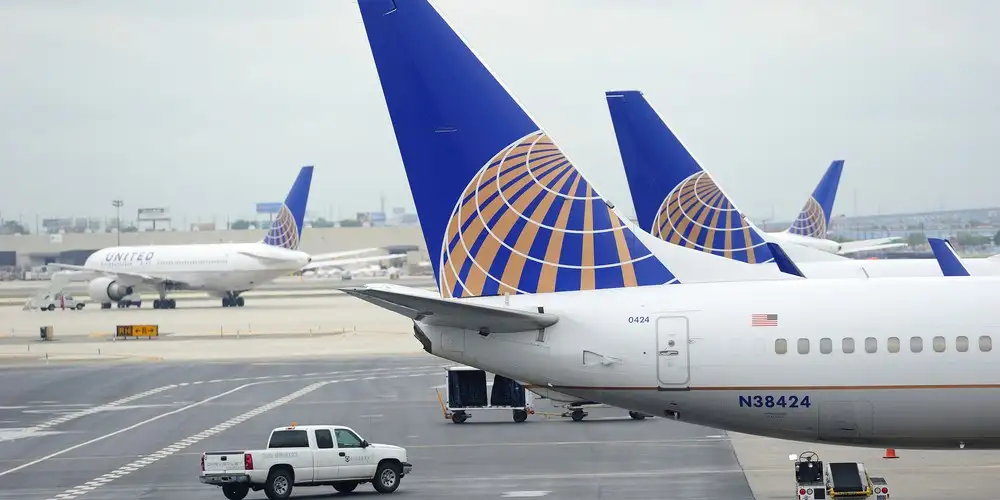
To nobody’s surprise, United announced a mostly “me too” makeover of its frequent-flyer program in the Delta pattern. And, also to nobody’s surprise, the new program is likely to make award travel worse for leisure travelers who use inexpensive tickets:
- The key change starting next March is that mileage earning will depend on how much you spend rather than how far you fly. Although still called “miles,” your earnings will really be about dollars.
- The key no-changes are that miles flown will remain a factor in qualifying you for elite status and that you will still earn one mile per dollar on United’s credit cards.
- The key unknown is how United will tweak (or slash) the availability of award seats.
The changes are clearly designed to benefit frequent business travelers, at the expense of leisure travelers. That’s not surprising, given that most airline managements apparently believe that the lower the fare, the lower the loyalty. If typical leisure travelers will switch airlines because of a $10 fare difference, they reason, why should we worry about trying to make them loyal to our brand? That’s a good question. Sure, they could generate loyalty by offering a better product—JetBlue seems to be doing pretty well with that premise—but improving the economy product seems to be anathema to the giant lines.
The new earnings formula is straightforward. Ordinary, entry-level frequent flyers will earn five miles per dollar; you earn more per dollar as you move up the elite levels, topping out at 11 miles per dollar for “1K” members, with a cap of 75,000 miles per ticket. The new rules apply to all United-issued tickets, including flights on partners, as identified by a ticket number starting with the numbers 016. The old rules will prevail on other partner flights.
Elite-status requirements will remain based on a combination of miles or segments flown and dollars spent per calendar year. The first level, Silver, requires either 25,000 “qualifying” miles or 30 individual flight segments plus an expenditure of $2,500; the top 1K level requires 100,000 miles or 120 segments and $10,000 on tickets.
Overall, my take is that the new formula will result in a lot more total miles issued. A leisure traveler on a typical long-haul route—Portland to Chicago, say—would pay (in July) around $600 for the 3,478-mile round-trip. He or she would earn 3,000 miles under the new system, just slightly less than the 3,478 miles earned under the current system. On the other hand, a business traveler, at, say, the median Gold level, would pay at least $1,000 and earn 8,000 miles, a big bump. Given that business travelers rack up a disproportionate share of total miles, it’s hard to see how the new program can avoid issuing more total miles than the current one.
If I’m right, those extra miles overall must necessarily translate into tougher requirements for award seats. That means some combination of higher mileage requirements and smaller seat allocations, neither of which are a happy prospect for United flyers. United hasn’t provided details; that shoe will drop sometime before next March.
Those of you who use basic United credit cards might want to rethink your options. More than ever, if you use your miles for economy-class travel, you’ll be better off using a card that earns up to two cents per dollar than with a mileage card. You should stick with the mileage only if you use it for premium seats, even though those seats will likely require more miles and be tougher to get.
As a final thought, most industry observers consider it unthinkable that American won’t follow Delta and United into the dollar-based earning camp. That will likely happen as soon as American manages to merge its program with US Airways—a task that American’s managers seem to find more daunting than the managers of Delta or United did. JetBlue, Southwest, and Virgin America already operate on dollar-based award systems, so the remaining question is what Alaska and Hawaiian will do. We see no hints yet.
Ed Perkins on Travel is copyright (c) 2014 Tribune Media Services, Inc.
You Might Also Like:
We hand-pick everything we recommend and select items through testing and reviews. Some products are sent to us free of charge with no incentive to offer a favorable review. We offer our unbiased opinions and do not accept compensation to review products. All items are in stock and prices are accurate at the time of publication. If you buy something through our links, we may earn a commission.
Related
Top Fares From
Today's Top Travel Deals
Brought to you by ShermansTravel
Porto to Lisbon: 7-Nt, Small-Group Portugal...
Indus Travels
 vacation
$1899+
vacation
$1899+
Greenland: Luxe, All-Incl. 11-Nt Exploration Small-Ship...
Swan Hellenic



Ohio: Daily Car Rentals from Cincinnati
85OFF.com





